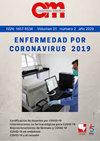Práctica basada en la evidencia: creencias, actitudes, conocimientos y habilidades entre fisioterapeutas colombianos
IF 1.3
4区 医学
Q3 MEDICINE, GENERAL & INTERNAL
引用次数: 17
Abstract
Objective: The main purpose of this study was to describe a group of Colombian physical therapists’ beliefs and attitudes towards Evidence-Based Practice (EBP), their education, knowledge and skills for implementing EBP, the use of relevant literature in clinical practice, access to and availability of scientific information and perceived barriers to including EBP in practice. Methods: This was a cross-sectional study which involved 1,064 Colombian physical therapists. The study used a 50-item screening questionnaire EBP developed to estimate attitudes, beliefs, knowledge and skills regarding. This instrument has been adapted and was validated previously in Colombia by Florez-Lopez et al. Results: The population mostly consisted of young females (77.2%) aged 22 to 29 years old (79.4%). Most respondents had an undergraduate degree (87.7%). The physical therapists stated that they had positive attitudes and beliefs regarding EBP, most of them answering that they agreed or strongly agreed that EBP is necessary (71.6%), the relevant literature is useful for practice (61.3%), EBP improves the quality of patient care (64.1%) and evidence helps in decision-making (44.5%). Forty-one percent of the respondents indicated that a lack of research skills was the most important barrier to the use of evidence in practice. Conclusion: The physical therapists reported that they had a positive attitude to EBP and were interested in learning about or improving the skills necessary to adopt EBP in their clinical practice. Article history:循证实践:哥伦比亚物理治疗师的信念、态度、知识和技能
目的:本研究的主要目的是描述一组哥伦比亚物理治疗师对循证实践(EBP)的信念和态度,他们的教育程度,实施EBP的知识和技能,临床实践中相关文献的使用,科学信息的获取和可用性以及将EBP纳入实践的感知障碍。方法:这是一项横断面研究,涉及1,064名哥伦比亚物理治疗师。该研究使用了EBP开发的50项筛选问卷来评估态度、信念、知识和技能。该仪器先前在哥伦比亚由Florez-Lopez等人进行了改进和验证。结果:人群以年轻女性为主(77.2%),年龄在22 ~ 29岁(79.4%)。大多数受访者拥有本科学历(87.7%)。物理治疗师对EBP持积极的态度和信念,大多数回答同意或强烈同意EBP是必要的(71.6%),相关文献对实践有用(61.3%),EBP提高了患者护理质量(64.1%),证据有助于决策(44.5%)。41%的答复者表示,缺乏研究技能是在实践中使用证据的最重要障碍。结论:物理治疗师报告他们对EBP持积极态度,并有兴趣学习或提高在临床实践中采用EBP所需的技能。文章历史:
本文章由计算机程序翻译,如有差异,请以英文原文为准。
求助全文
约1分钟内获得全文
求助全文
来源期刊

Colombia Medica
MEDICINE, GENERAL & INTERNAL-
CiteScore
2.00
自引率
0.00%
发文量
11
审稿时长
>12 weeks
期刊介绍:
Colombia Médica is an international peer-reviewed medical journal that will consider any original contribution that advances or illuminates medical science or practice, or that educates to the journal''s’ readers.The journal is owned by a non-profit organization, Universidad del Valle, and serves the scientific community strictly following the International Committee of Medical Journal Editors (ICMJE) and the World Association of Medical Editors (WAME) recommendations of policies on publication ethics policies for medical journals.
Colombia Médica publishes original research articles, viewpoints and reviews in all areas of medical science and clinical practice. However, Colombia Médica gives the highest priority to papers on general and internal medicine, public health and primary health care.
 求助内容:
求助内容: 应助结果提醒方式:
应助结果提醒方式:


